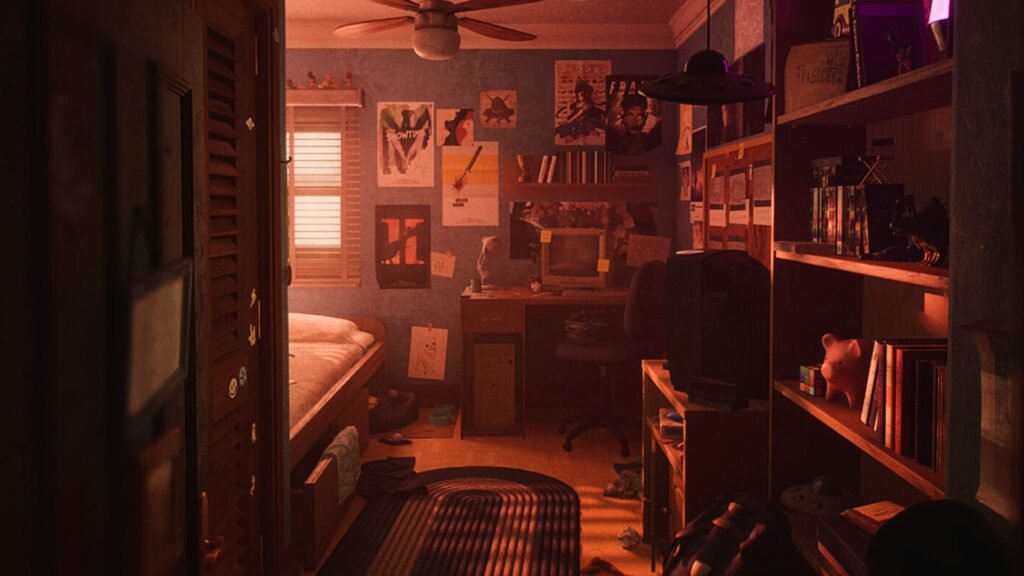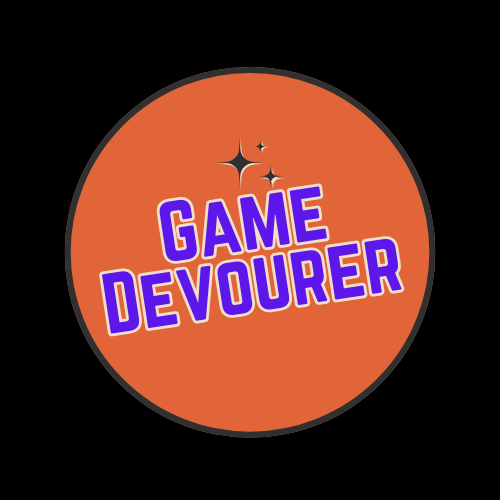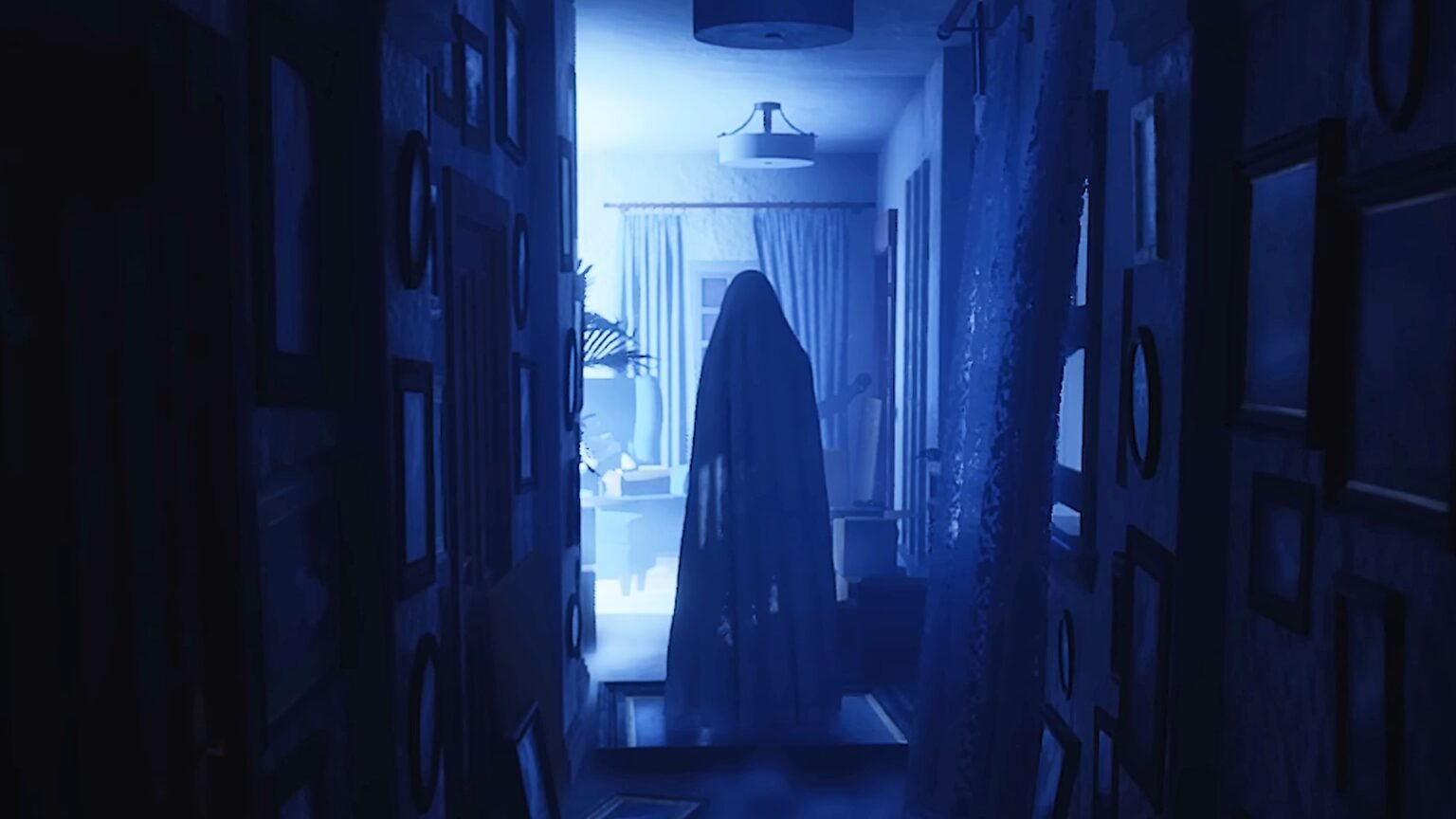Luto is a first-person psychological horror game created by the Spanish indie studio Broken Bird Games. Players take on the role of Samuel Hale, a man who finds himself mysteriously trapped inside his own home.
The story is told through the environment, symbolic details, and a narrator who frequently breaks the fourth wall. Alongside its horror elements, Luto also blends platforming, parkour, puzzle-solving, and music-based combat. It’s unlike any game you’ve likely played before, and that’s a good thing.
This Is True Horror

Playing Luto was a truly unique and deeply disturbing experience. Right from the start, I was stuck inside a house, waking up over and over to the same broken bathroom mirror, unable to escape what felt like my own home. This looping mechanic pulled me in completely, making me repeat what seemed like a normal routine, only to have reality twist and distort every time I tried to leave.
The game isn’t focused on fighting or managing items. Instead, it’s a first-person psychological horror experience built entirely on exploration and solving puzzles. I spent a lot of time carefully studying my surroundings, looking for hidden notes, drawings, and other clues that slowly revealed the main character, Samuel’s past and struggles. Some puzzles were really smart, making me think symbolically and piece together scattered information, though a few were so vague that they stopped me in my tracks and tested my patience.
The game builds its unsettling atmosphere through shifting environments, heavy sound design, and bizarre visuals that reflect Samuel’s inner turmoil. The house itself seemed alive, with rooms and doorways connecting in impossible ways, making me doubt what was real.
The house itself seemed alive, its layout constantly changing, leading me through impossible spaces, from ordinary rooms to endless deserts, leaving me more curious than anything else.
The horror in Luto doesn’t rely on cheap jump scares, though a few unexpected moments did catch me off guard. Instead, it builds tension and dread through its atmosphere, using creepy sound design, subtle visual tricks, and the appearance of those strange, sheet-covered figures.
More Reviews: Cattle Country Review – Wild Wild West
The Mind Is a Scary Thing

Luto is a deeply personal and disturbing dive into the workings of the human mind. Samuel discovers he is mysteriously stuck inside his own house with no way out. This confinement isn’t just physical; it soon becomes clear that he’s caught in a psychological loop, repeatedly waking up to the same broken bathroom mirror while the world warps and twists.
The story is a complex and often abstract exploration of grief, loss, depression, and anxiety. One of the most noticeable parts of the game was the narrator, who reacted to everything I did. At first, this felt a little awkward, almost like the story was being handed to me too easily.
As the plot deepened, the voice became much more important and unsettling. I admit I was wrong about it at first because I thought it would break immersion, but it only helped to scare me.
The plot unfolds slowly through environmental clues like scattered notes, sketchbook pages, and other small details that gradually piece together Samuel’s past and his painful experiences. This includes the deaths of his brother, father, dog, and possibly his grandfather. One of the most powerful moments came when the game itself started to break down.
These “glitch” sequences, which felt like I was seeing behind the curtain of the game’s creation, were actually a strong metaphor for Samuel facing the bare structure of his own nightmare, crafted by his mind. I won’t ruin the end, but you’ll need about three to five hours to finish it, and it’s worth it.
More Reviews: The Precinct Review – More Than A Simulator
I Couldn’t Step Away

Playing Luto was an experience that stood out from most other horror games I’ve tried. It’s not the kind of “fun” that feels lighthearted or carefree, but instead, it delivers a gripping and daring psychological journey that holds your attention completely. The atmosphere was heavy with tension, making every corner of the game feel dangerous, even when nothing scary was happening.
Luto focuses on building mood and creativity rather than relying on cheap scares, and I found this approach better than most games out there today. At first, I was bothered by the narrator’s frequent interruptions. It felt like someone was explaining the story to me instead of letting me uncover it on my own. But as I played further, I realized how important his role was in the larger narrative.
The puzzles were often smart and full of symbolism, but some of them were more frustrating than they needed to be. There were times when I wandered around the house for what felt like forever, unsure of what to do next. Still, the satisfaction of finally solving them made the struggle worthwhile, and they pushed me to examine every small detail in the ever-changing environments.
Certain moments, like the quiet appearances of figures draped in sheets or the mind-bending visual tricks, left me genuinely uneasy. Luto is a deeply emotional and reflective exploration of grief and mental illness. Its bold approach to storytelling and willingness to defy expectations was captivating.
For an indie game, it delivers an experience that stays with you long after you’ve finished playing, leaving you to think about its meaning and themes. It’s definitely not a game for everyone, but if you’re looking for something unique, unsettling, and thought-provoking in the psychological horror genre, it’s well worth your time.
We give Luto a 9 out of 10. This is definitely worth the purchase if you like Horror games.

